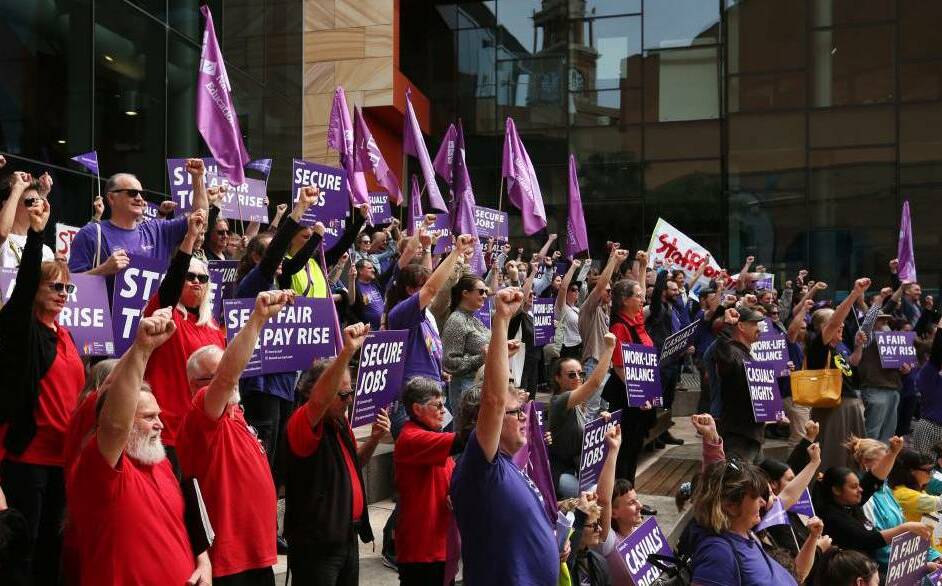
The academics union fears University of Newcastle management will use new laws designed to break enterprise bargaining deadlocks to "drive down pay and conditions".
Academic staff at the university, including those in the National Tertiary Education Union, have been negotiating with management for nearly two years on a new enterprise agreement.
Staff voted last week to go on strike for 24 hours this Thursday after they rejected a revised university offer and management subsequently referred their dispute to the Fair Work Commission for resolution.
Vice-chancellor Alex Zelinsky said in a message to staff on Tuesday last week that it was "now obvious to us that it is no longer possible to reach consensus through continued negotiations".
The NTEU said on Tuesday, hours before the parties met in the commission, that it was concerned the university would attempt to use new legislation to "gut" staff conditions.
The federal government's revised "same work, same pay" industrial relations laws, which come into effect on Tuesday next week, enable the commission to make an "intractable bargaining declaration" to resolve outstanding issues.
The government says the new rules are designed to reduce the prospect of industrial action and "provide a strong incentive for parties to negotiate in good faith and reach agreements more quickly".
NTEU general secretary Damien Cahill said the union would "fight tooth and nail against any attempt to use workplace laws to sideline workers".
The Australian Higher Education Industrial Association has published a road map to help employers deal with enterprise bargaining disputes under the new legislation.
The battle plan advises universities to seek intractable bargaining determinations from the commission.
"Having non-agreed matters arbitrated may give you some success in addressing poor clauses down to 'community standards'," the road map says.
The NTEU said in a media statement that the scope of the university's application to the commission was "broad" and included "key workplace rights".
"The NTEU fears this is proof management wants to use new intractable bargaining processes to gut staff working conditions," the statement says.
"Pay and conditions being decided through arbitration will likely leave staff worse off than an agreement between the NTEU and management."
Dr Zelinsky said in his message to staff last week that the NTEU members' rejection of the "fair and reasonable" offer was "disappointing".
"The university has made significant concessions in our latest rounds of bargaining," he said.
"We have decided that the best and quickest way to reach resolution is to refer the matter to the Fair Work Commission to finalise our proposed agreements."
The Newcastle Herald has been told staff rejected the university's most recent offer in part because it deleted a proposal to pay casuals the same 17 per cent superannuation rate as permanent employees.
Casuals now receive the standard 10.5 per cent super guarantee.
The university offered a 13 per cent pay rise to academic staff over three years.
The university's Community and Public Sector Union members voted in favour of a proposed professional staff agreement 10 days ago.
The parties will continue negotiating before the commission on Monday, Tuesday, Thursday and Friday next week.
The commission issued a statement after Tuesday's conciliation conference saying it would "facilitate an intense week of bargaining next week, with a view to agreement being reached on the form and content of enterprise agreements to be put to a vote of professional and academic employees of the University of Newcastle".
The Newcastle Herald contacted University of Newcastle for comment.
To see more stories and read today's paper download the Newcastle Herald news app here.







